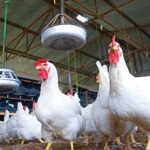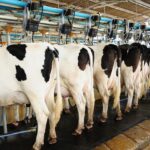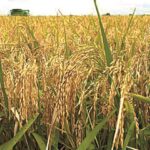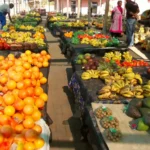Background
1.0 Special Agro-Industrial Processing Zones (SAPZ) Project is designed to align with the Nigeria National Development Plan (2021-2025) with the main objectives of increasing household incomes and foster job creation in rural agricultural communities, especially for the youth and women; and enhancing food and nutritional security. The SAPZ Project interventions will support inclusive and sustainable agro-industrial development and enhance the competitiveness of the agriculture sector through the promotion of selected value chains.
2.0 The commodities selected for intervention support in Kano State within and around the Agricultural Transformation Centres (ATCs) include: Rice (in Kura L.G.A), Tomato (in Bagwai L.G.A.), Groundnut and Sesame (in Dawanau–Dawakin Tofa L.G.A.), and Livestock – Beef and Dairy (in Kakara Gezawa L.G.A); while Bagauda (in Bebeji LGA) is identified as the Agricultural Industrial Hub (AIH) for the Program.
3.0 In Kano, the Program is targeting 50,000 direct beneficiaries of which 50% will be women, and 40% are expected to be youth. These percentages include vulnerable population (internally displace people, 2,500 and people with disabilities, 50). Overall, an estimated 250,000 households (comprising 50,000 direct and 200,000 indirect) are targeted to be reached in Kano State by the SAPZ through IFAD support.
4.0 The program has four components namely:
➢Component 1: Infrastructure Development and Management for Agro-Industrial Hubs (AIHs). Under this AfDB-led component, the programme will support the FGN in developing and setting up SAPZs in high potential states.
➢Component 2: Agricultural Productivity, Production, Market Linkages and Value Addition in SAPZ Catchment Areas. Under this component, SAPZ’s objective is threefold: (i) support smallholder farmers and small operators to increase their productivity/production and capacity to add value to raw materials on a profitable and environmentally sustainable basis; and (ii) link them to the additional market outlets offered by the Agro-Industrial Hubs (AIHs), off-takers supplying the local and national market who operate in the target area, and small processors/traders supplying the local markets, including primary processors operating in the Agricultural Transformation Centres (ATCs); iii) enhance the resilience and adaptive capacity of smallholder farmers to climate change.
➢Component 3: Policy and Institutional Development Support. The objective of component 3 is to support the development of enabling policies, legislation, and regulation for SAPZs in Nigeria to create a conducive business environment for private sector investment and to address inefficiencies and market failures in agricultural value chains.
➢Component 4: Programme Coordination and Management. This component will ensure that the programme is efficiently and effectively managed to achieve expected results.
5.0 A core component of the SAPZ program is mainstreaming gender, youth empowerment, social inclusion, and improved household nutrition, especially within under-served communities. Despite ongoing interventions, entrenched social norms, gender stereotypes, limited access to information, resources, and services continue to impede equitable participation of women and youth, and negatively influenced household nutrition behaviors. To facilitate sustainable behavior change, it is critical to understand the underlying barriers and enablers to desired nutrition behavioural practices. Barrier Analysis (BA) is thus, needed to identify determinants influencing behaviors and design evidence-based social behavior change communication (SBCC) and programmatic responses.
Objectives of the Assignment
6.0 The overall objective of the assignment is to engage reputable Consultants who will undertake barrier analysis of behavioural change of Kano SAPZ beneficiaries located in the intervention LGAs of the programme. In this regard, the Consultant will conduct a comprehensive study to analyze the barriers to behaviour change, with a specific focus on women and youth, involved in the Agricultural Value Chain crops of Rice, Tomato, Groundnut and Sesame in the selected LGAs of FGN/IFAD/SAPZ funded States.
To conduct a comprehensive Barrier Analysis that identifies behavioral determinants influencing gender norms, youth engagement, and household nutrition practices among women farmer organizations and youth in SAPZ-targeted communities, and To provide actionable recommendations for behavioral change interventions
7.0 In specific terms, the objectives of the study include:
i. Determine the obstacles that prevent profiled FOs (farmers organisation) members from adopting desired behaviors or achieving specific goals.
ii. Investigate the underlying reasons for each barrier to inform the development of effective interventions under SAPZ
iii. Rank barriers based on their perceived degree of impact so as to focus SAPZ interventions on the most significant of them.
iv. Evaluate the knowledge and practices that influence behavioral decisions and identify areas needing improvement.
v. Examine the physical and social environmental impact on behavior and identify potential barriers of profiled FOs members.
vi. Determine the skills and abilities required for behavioral change and identify areas needing skill-updrade.
vii. Estimate FOs frequency and distribution of barriers among the target population.
viii. Provide recommendations for enhancing the participation of women and youth in the program, especially, the nutrition activities.
ix. Develop a detailed report outlining the findings, and actionable recommendations for improved behaviour change and communication of SAPZ value chain actors.
Kindly download the attached document for more details






Recent Comments